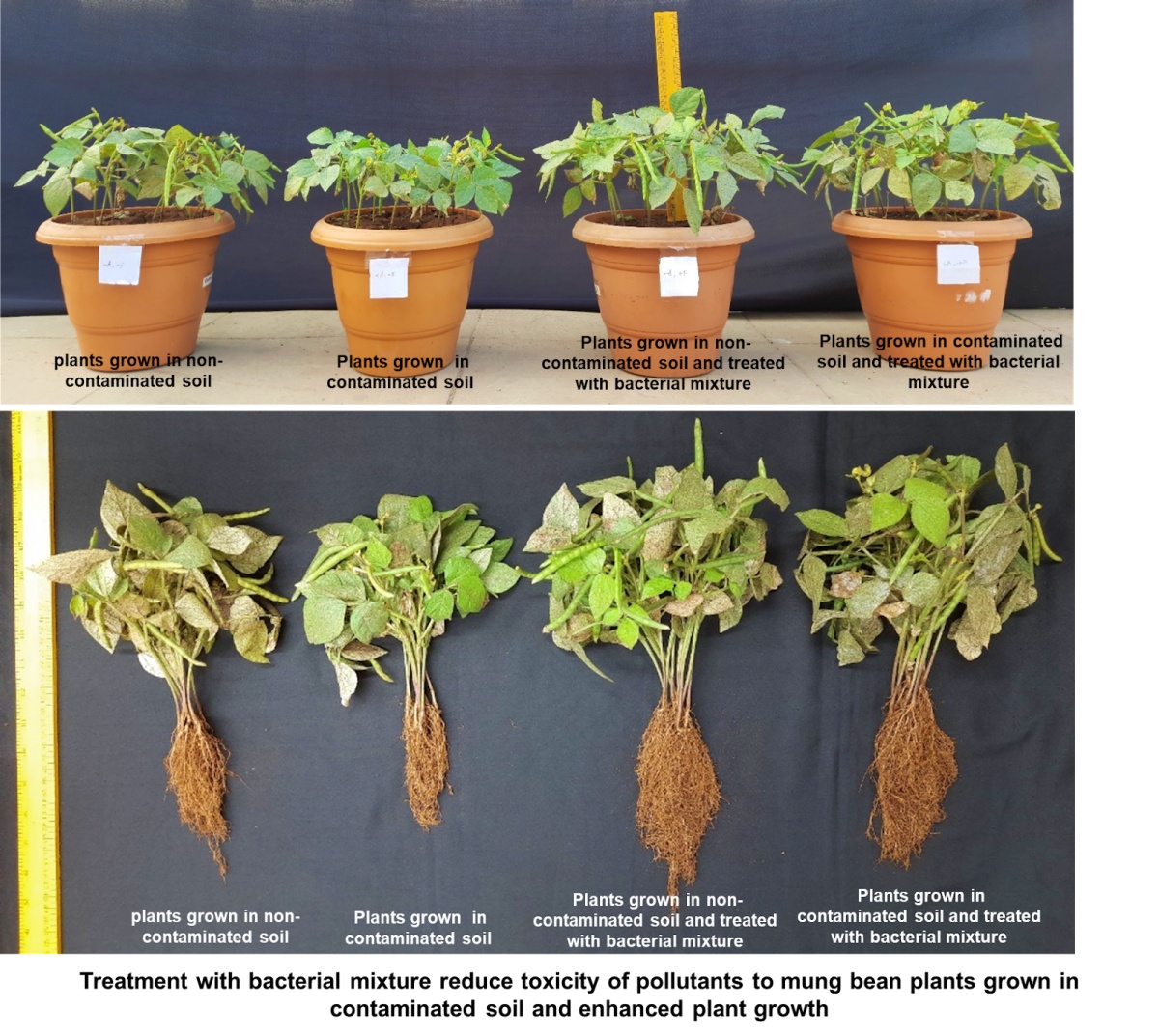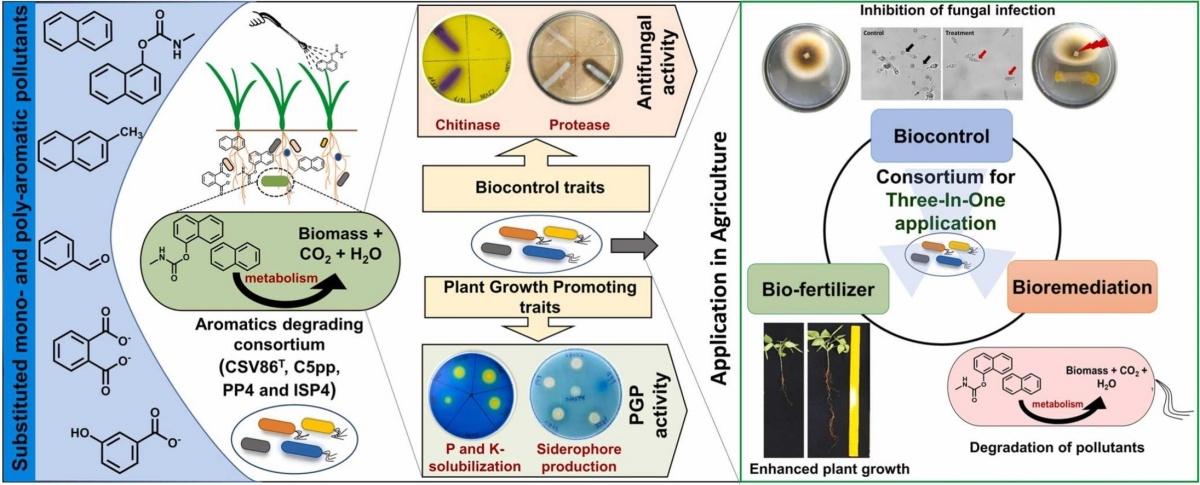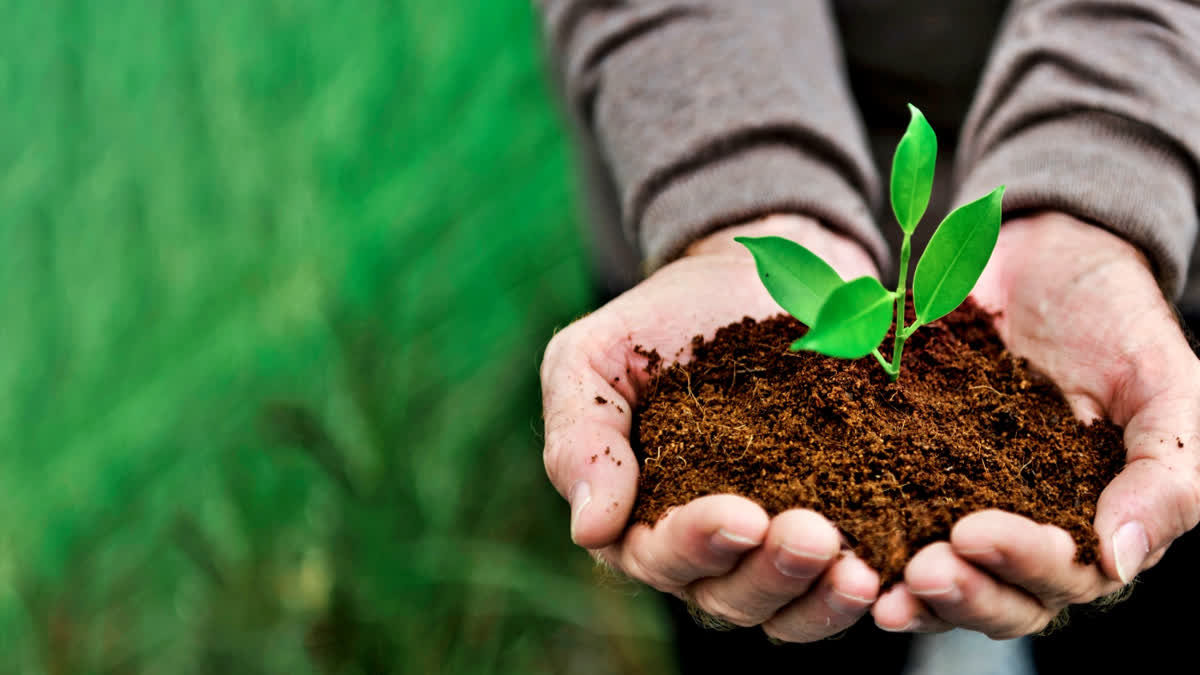In a groundbreaking study, researchers at the Indian Institute of Technology Bombay (IIT Bombay) have discovered bacterial species with the remarkable ability to consume toxic pollutants in soil and transform them into nutrients that promote plant growth.
Modern agriculture and industrial activities release harmful aromatic compounds into the soil, including pesticides, herbicides, and industrial by-products from cosmetics, plastics and dyes. These pollutants not only inhibit seed germination and plant growth but also accumulate in crops, impacting human health and the environment.

Traditional methods to combat soil contamination (such as chemical treatments or soil removal) are expensive and often ineffective. Enter IIT Bombay’s innovative solution: natural “cleaner” bacteria.
Bacteria That Eat Pollutants And Feed Plants
The research team led by Prof. Prashant Phale from IIT Bombay’s Department of Biosciences and Bioengineering identified specific bacterial strains from contaminated soils and agricultural fields. These bacteria, primarily from the Pseudomonas and Acinetobacter genera, feed on harmful pollutants and break them down into non-toxic, harmless compounds.

“These bacteria act as natural cleaners, breaking down aromatic pollutants while simultaneously improving soil health,” says Prof. Phale.
But their benefits don’t stop there. While eliminating pollutants, the bacteria also:
Convert Insoluble Nutrients: Transform insoluble phosphorus and potassium into forms readily available to plants.
Enhance Iron Absorption: Produce substances called siderophores, which help plants absorb iron in nutrient-limited environments.
Boost Plant Growth: Generate a growth hormone called indoleacetic acid (IAA), making plants healthier and more robust.
Game-Changer For Agriculture
By using a “bacterial cocktail” combining strains from Pseudomonas and Acinetobacter, researchers observed a 45-50% increase in crop yields for staples like wheat, mung beans, spinach, and fenugreek.
“As they say, ‘unity is the best policy.’ Some strains excel at breaking down pollutants, while others are better at promoting plant growth or defending against diseases,” says Prof. Phale.
This discovery has wide implications for agriculture and sustainability:
Eco-Friendly Farming: Farmers can reduce reliance on chemical pesticides, which often harm beneficial organisms and degrade soil quality.
Improved Soil Health: The bacteria restore soil fertility by replenishing essential nutrients and cleaning up pollutants.
Higher Crop Yields: Healthier plants mean better harvests, ensuring food security and increased farmer incomes.
Moreover, this approach is especially valuable for resource-limited regions where farmers struggle with poor soil quality and limited access to chemical inputs. “We’ve essentially harnessed the power of nature to solve a man-made problem,” says Prof. Phale.
The next step? Scaling this technology and bringing it to farms worldwide. After all, the best solutions are often those that work with nature, not against it.
Read more:



